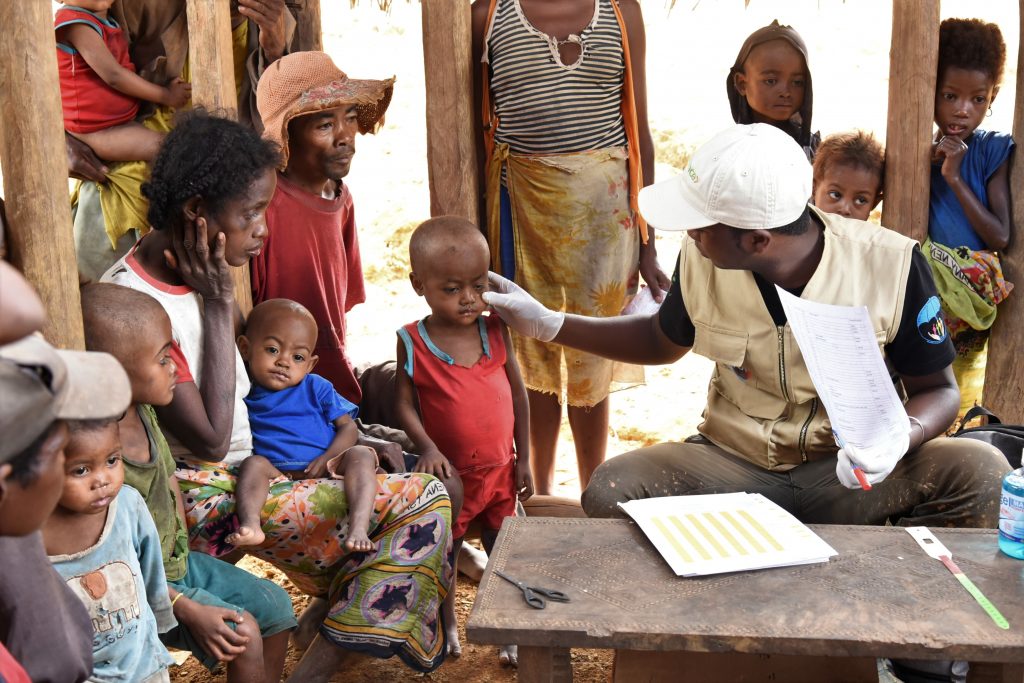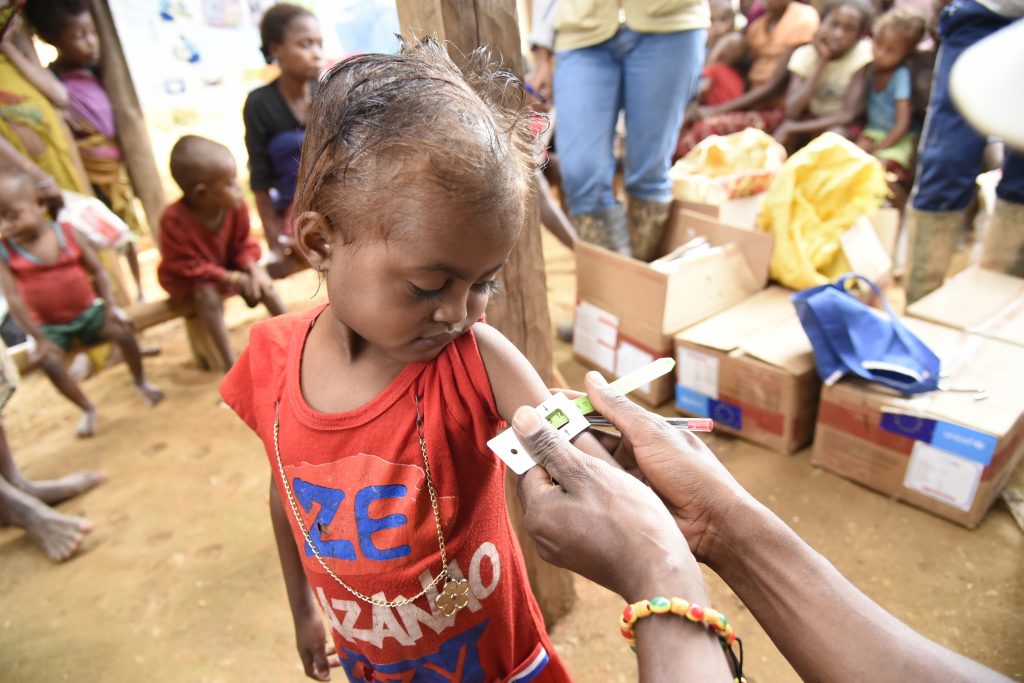30 Jun Responding to a Post-Cyclone Health Crisis
by Antenaina Rafetrason (Communications Manager)

Sandrasaty is a small village of about 1,500 people located in the fokontany (village cluster) of Analamarina in the commune of Tsaratanana. The village is 7 kilometers (~4.3 miles) from the nearest health facility, which is a level-1 clinic that offers basic services and is only accessible by motorbike or on foot. According to the village chief, Gilbert Razafindrakoto (pictured here on the left), trust in the health system is weak among his community, meaning people only go to the health center when they are extremely sick, and otherwise still prefer to self-medicate with medicinal plants, such as quinine or orange leaves, which grow around the village.
Sandrasaty is one of the villages that suffered major destruction to buildings, crops, and other infrastructure during the early-2022 cyclone season, which was among the worst in Madagascar’s recorded history. Soon after, a spike in gastrointestinal illness swept the village, which is not uncommon following a natural disaster that limits safe shelter and clean water sources.
Over the course of just two weeks, ten people died, and the majority of villagers, adults and children alike, were suffering from a variety of symptoms of common infectious disease. Community Health Worker Marcellin (pictured here on the right), who has been working in this fokontany since 2018, was the first to seek support for Sandrasaty’s by raising a flag to the Pivot field team.
Alongside representatives from the Ifanadiana District Health Department, Pivot carried out an investigation into the ongoing crisis in early April, finding that the residents of Sandrasaty were experiencing a parasitic diarrheal outbreak and, directly linked to this, the majority of children screened were suffering from some degree of malnutrition.

Following that first visit, Pivot and the Ministry of Public Health launched a targeted response to the situation in Sandrasaty, including the mass distribution of anti-parasitic drugs, dispatch of a mobile clinic specifically designated to provide regular treatment and observation of the 13 children diagnosed as severely malnourished, and a coordinated campaign for the construction of latrines to get a handle on public sanitation in the wake of the cyclones. Over the next two months, Pivot’s teams visited Sandrasaty at least weekly to provide care, make referrals, and closely monitor the situation.

By June, the local diarrheal epidemic was overcome, and community members had banded together to build 3 public latrines to reduce risk of disease transmitted through waste water. Of the 13 children being treated for malnutrition, six had been cured, with the remaining seven well on their way to recovery. Pivot is collaborating with Analamarina Health Center to ensure the continuity of the care of the remaining malnourished children as well as those that arrive in the future. In the meantime, a small outpost has been established in Sandrasaty village dedicated to the delivery of malnutrition treatment close to home.
We extend our gratitude to CHW Marcellin for serving as a community advocate and alerting Pivot to the heightened need in his home village of Sandrasaty, where this months-long health crisis has finally come to an end.

